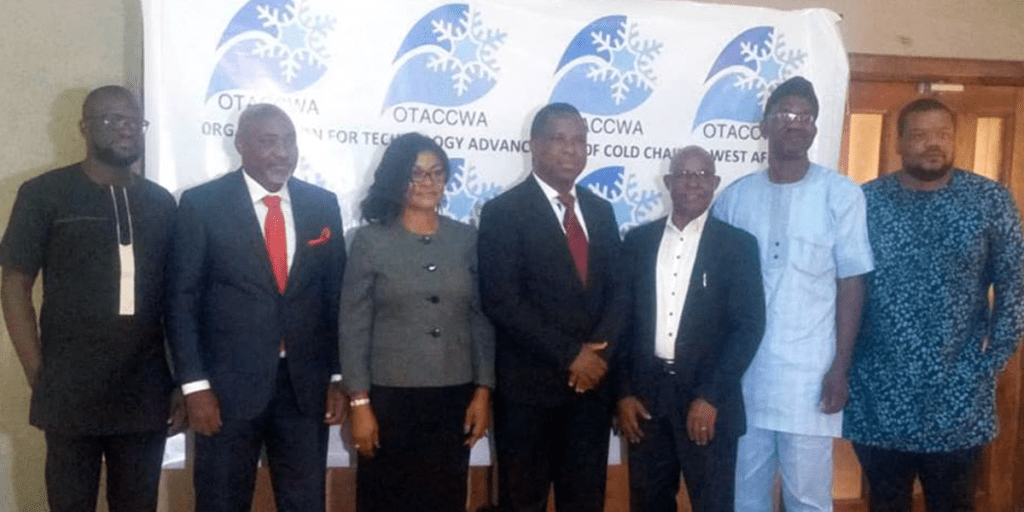The need for all stakeholders in the public and private sectors to come together and partner to strengthen the cold chain network in the country has been stressed, during the 6th West African cold chain summit and exhibition, held in Lagos. The summit was organised by the Organisation for Technology Advancement of Cold Chain in West Africa (OTACCWA), FairTrade and Technoserve, aimed at addressing critical issues concerning food and nutrition security with focus on post-harvest loss reduction, proper packaging, and processing for improved nutrient retention in the region.
At the occasion, the Minister of Agriculture and Food Security, Senator Abubakar Kyari, said that post-harvest losses remain a pressing concern in Nigeria; with estimates suggesting that up to 40 per cent of the nation’s agricultural produce, being lost annually to inadequate storage and transportation facilities. “This alarming statistics represent not only a substantial economic loss to our farmers, but also pose a grave threat to food security and nutrition in our nation. Kyari, who was represented by Hajiya Zuburat Mahmud, stated that cold chain infrastructure, encompassing refrigeration, transportation, and storage facilities, plays a crucial role in preserving the quality and nutritional value of agricultural produce from farm to fork.
“As we convene to deliberate on the challenges and opportunities within the cold chain sector, it is imperative to underscore the pivotal role that cold chain infrastructure plays in safeguarding the integrity of our agricultural produce and ensuring food security for our populace. Nigeria, like many other West African nations, grapples with significant post-harvest losses, exacerbated by inadequate cold chain facilities and inefficient supply chain systems. Our journey towards achieving a resilient and inclusive cold chain ecosystem still has a long way to go. We must redouble our efforts to bridge existing infrastructure gaps, foster public-private partnerships, and harness innovative technologies to optimise cold chain operations. By leveraging emerging technologies such as Internet of Things (IoT)-enabled monitoring systems, block-chain traceability, and renewable energy solutions, we can enhance the efficiency, transparency, and sustainability of our cold chain networks.
“Moreover, in tandem with our cold chain initiatives, we must address the broader issues of food security and malnutrition that afflict our nation”, he added. The minister stated that despite the nation’s agricultural abundance, millions of Nigerians continue to suffer from food insecurity and malnutrition, perpetuating a cycle of poverty and deprivation. “As we to build a resilient cold chain infrastructure, we must also prioritise interventions aimed at improving access to nutritious food, promoting dietary diversity, and addressing the underlying determinants of malnutrition”, he said. On his part, the President of OTACCWA, Alexander Isong, called on the Federal Government to invest in refrigeration, stating that post-harvest losses can be tackled by leveraging on the use of cold chain technology.
Isong noted that why there were lot of post-harvest losses because farmers do not practice pre-cooling at the farms and that after harvest, they are supposed to put their produce in a pre-cooling chambers, which takes the produce to a manageable temperature by extending the shelf-life of the produce. “The private sector alone cannot fund the acquisition of these pre-cooling chambers and that is why OTACCWA is partnering the International Finance Corporation (IFC) to find cheap technology to bring down the cost of refrigeration. We are also scaling up these projects in different parts of the country believing that if we can get the farming community to reduce their post-harvest losses by at least 10 per cent, we would be able to bring down the rate across the country to the barest minimum. We cannot achieve zero percent post-harvest losses overnight, but if we can bring it to 40 per cent this year, add another next year; in the next five to 10 years, it would be a thing of the past, but we need to start and scale up these programmes across the country”, he said.



